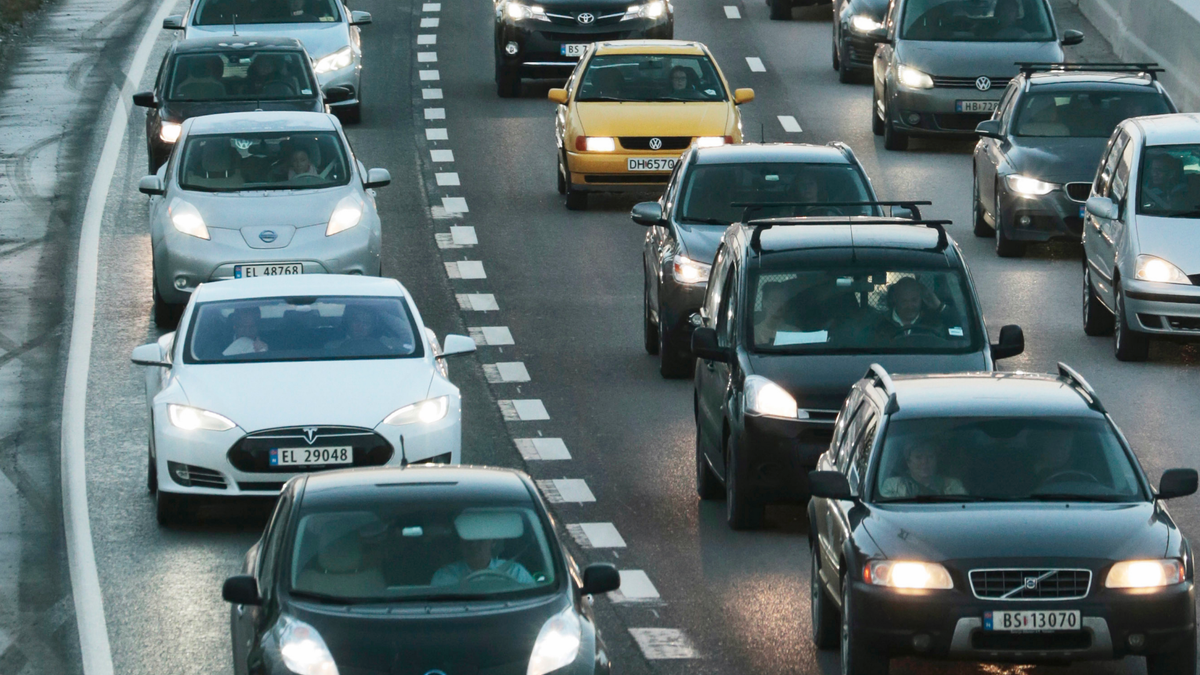
(Lise Aserud/NTB Scanpix via AP, File)
There has never been a better time to be in the market for an electric car.
The big automakers are ramping up electric-vehicle production. General Motors plans to produce 20 new electric models. Ford will double its electric spending. Volkswagen will invest $40 billion in electric development.
The luxury end of the electric market also is accelerating. Bentley, Aston Martin, Maserati and Porsche all say they will roll out high-end electric models.
CLICK HERE TO READ MORE ABOUT ELECTRIC CARS ON FOXNEWS.COM
Porsche recently publicized plans to double its electric production.
Never before has the electric-car consumer had so many choices. Taxpayers, on the other hand, don’t have any choice. Every time one of these cars sells, the U.S. taxpayer must help pay for it.
For nearly 30 years, Washington has provided subsidies for electric-car buyers. The tax credit for electric-vehicle purchases has boosted electric sales and helped the market establish itself.
Over time, the size of the subsidy has grown. For every electric vehicle sold in America today, U.S. taxpayers pay up to $7,500.
It’s time to take taxpayers off the hook. The industry no longer needs these subsidies.
Never before has the electric-car consumer had so many choices. Taxpayers, on the other hand, don’t have any choice. Every time one of these cars sells, the U.S. taxpayer must help pay for it.
I have introduced legislation to unplug this costly program.
The Fairness for Every Driver Act will end Washington’s electric-car subsidies. According to the Manhattan Institute, eliminating the program now could save taxpayers $20 billion.
This expensive program disproportionately subsidizes wealthy car buyers. Eight out of 10 electric-car tax credits go to households earning at least $100,000 – buyers who don’t need a subsidy.
The program has served its purpose; the electric-car market is established. The U.S. Energy Information Administration projects that by 2025, there will be 4 million electric cars on the nation’s roads.
The Fairness for Every Driver Act will end Washington’s electric-car subsidies. According to the Manhattan Institute, eliminating the program now could save taxpayers $20 billion.
Washington is not the only provider of these subsidies. Nearly every state now provides its own incentives for electric-car buyers.
California and Colorado are currently offering up to $5,000 in electric-vehicle purchase rebates. Why should Wyoming drivers continue to subsidize wealthy drivers in California?
Besides providing taxpayer relief, my legislation helps upgrade and improve America’s aging roads and bridges.
The U.S. Highway Trust Fund pays for important road and bridge repair projects. Without congressional action, the fund will run out of money by 2021.
Drivers of gas- and diesel-powered vehicles pay into the fund every time they fill their tanks. Drivers of electric vehicles don’t pay this fee.
An electric car puts as much strain on the roads as a gas-powered car. Electric-car drivers shouldn’t be given a free ride.
Instead of contributing to road maintenance, electric-car buyers are receiving checks from Washington.
To ensure all drivers pay their fair share to fix the roads, my legislation establishes an annual highway user fee for alternative-fuel vehicles.
Over the next decade, this user fee, together with eliminating the tax subsidy, will produce billions of dollars for road projects.
The bottom line is this: Electric cars are here to stay. The electric-vehicle market is poised for growth with or without the subsidies.
CLICK HERE TO GET THE FOX NEWS APP
New electric models are abundant, clean and efficient. Taxpayers no longer need to help pay for them.
Congress should pass this legislation to end a costly and unnecessary program as we work to restore America’s roads and bridges.